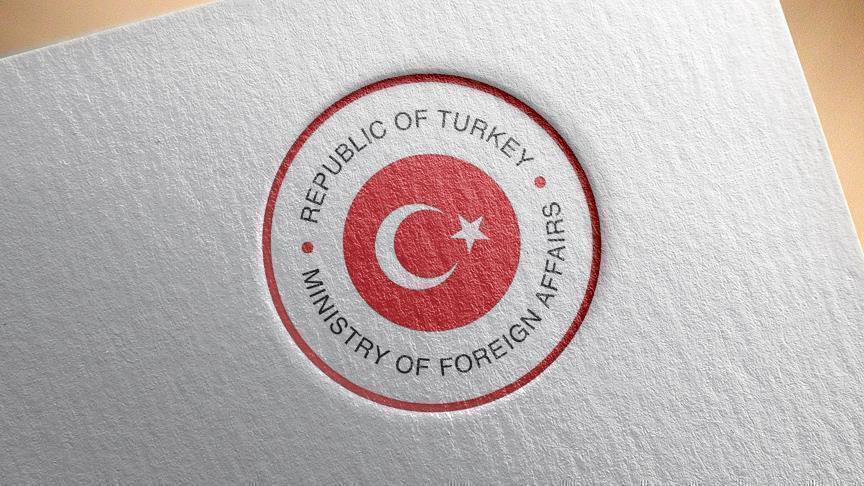
The statement of Vice President and High Representative of the EU Commission Josep Borrell following President Recep Tayyip Erdoğan’s visit to Turkish Cyprus is “null and void” for Turkey as it aims advocacy of Greek Cyprus, Ankara has said.
Borrell’s statement was “made solely for the sake of EU solidarity and is null and void for us, does not go beyond serving as the spokesperson and advocate of the Greek Cypriot administration and Greece, which abuse their veto right within the EU,” Foreign Ministry spokesperson Tanju Bilgiç said in a written statement on July 20.
Turkey fully supports the decisions taken by the Turkish Cypriot authorities on Varosha, the spokesperson said, adding that these decisions were aimed at protecting the rights of property owners in Varosha.
Recalling a statement by Erdoğan that these decisions will not cause new grievances but will eliminate the old ones, Bilgiç said: “On this occasion, we invite the EU once again to notice the realities on the island and to end its policy of ignoring the Turkish Cypriots and their inherent rights.”
Turkish Cypriot authorities announced on July 20 a partial reopening of an abandoned town for potential resettlement, drawing a strong rebuke from the rival Greek Cypriots of orchestrating a land grab by stealth.
Addressing the ceremonies on July 20 for the 47th anniversary of the Cyprus Peace Operation, Erdoğan said the opening would be carried out with utmost attention to property rights. “In the light of these works carried out in compliance with property rights, the doors of a new era will be opened in Maraş [Varosha] that will benefit everyone. The fact that the initiative will first start in the pilot area, which corresponds to 3.5 percent of closed Varosha, reveals how sensitive the Turkish Cypriot authorities are to this issue,” Erdoğan said.
He emphasized that the town would be a symbol of the peaceful and prosperous future of the Island of Cyprus and not of a deadlock. “With these steps, new grievances will not be created in Maraş. On the contrary, existing grievances will be eliminated,” the president added.
Turkish Cypriot President Ersin Tatar on July 20 said that a 3.5-square-kilometer (1.35-square-mile) section of Varosha would revert from military to civilian control so that the Greek Cypriots could reclaim their properties through the Immoveable Property Commission (IPC), a legal body that is empowered to adjudicate such cases.
Borrell expressed concern over the statements, saying, “[The] unilateral decision announced today by President Erdoğan and [Turkish Cypriot leader Ersin] Tatar risks raising tensions on the island compromising return to talks on a comprehensive settlement of the Cyprus issue.”
“The EU remains fully committed to the comprehensive settlement of the Cyprus problem on the basis of a bi-zonal, bi-communal federation with political equality, in accordance with the relevant UNSC Resolutions and in line with the principles on which the EU is founded and expects the same of Turkey,’’ Borrell stated.
The United States condemned the announcement by Tatar and Erdoğan, saying that the U.S. “views the Turkish Cypriot actions in Varosha, with the support of Turkey, as provocative, unacceptable and incompatible with their past commitments to engage constructively in settlement talks.’’
In a statement, U.S. Secretary of State Antony Blinken urged the Turkish Cypriots and Turkey to reverse the decision. “The United States is working with like-minded partners to refer this concerning situation to the U.N. Security Council and will urge a strong response,’’ he said.
Varosha is a suburb of Famagusta, a city that was Cyprus’ pre-1974 tourism hub thanks to its pristine beaches and modern hotels. After Varosha’s 15,000 Greek Cypriot residents fled in the face of advancing Turkish troops, the area was fenced off to prevent any access until last year when Turkish and Turkish Cypriot authorities announced its reopening.
In 1974, a Greek Cypriot coup aiming at Greece’s annexation led to Turkey’s military intervention as a guarantor power to protect the Turkish Cypriots from persecution and violence.